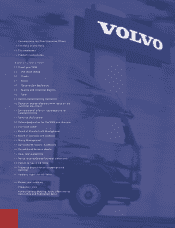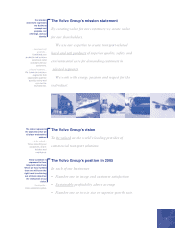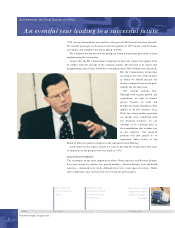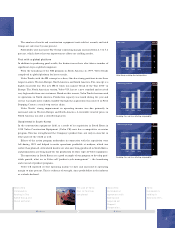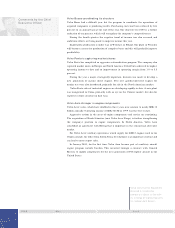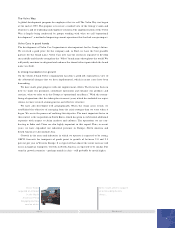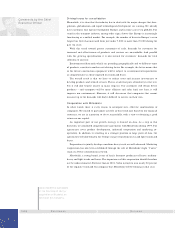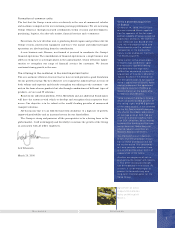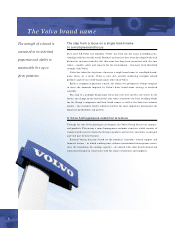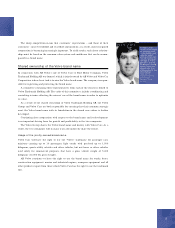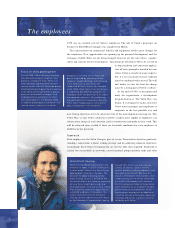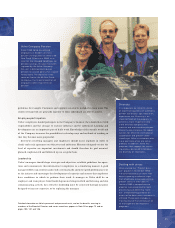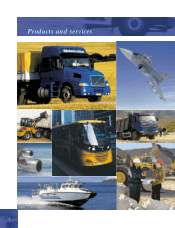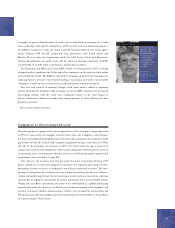Volvo 1999 Annual Report Download - page 12
Download and view the complete annual report
Please find page 12 of the 1999 Volvo annual report below. You can navigate through the pages in the report by either clicking on the pages listed below, or by using the keyword search tool below to find specific information within the annual report.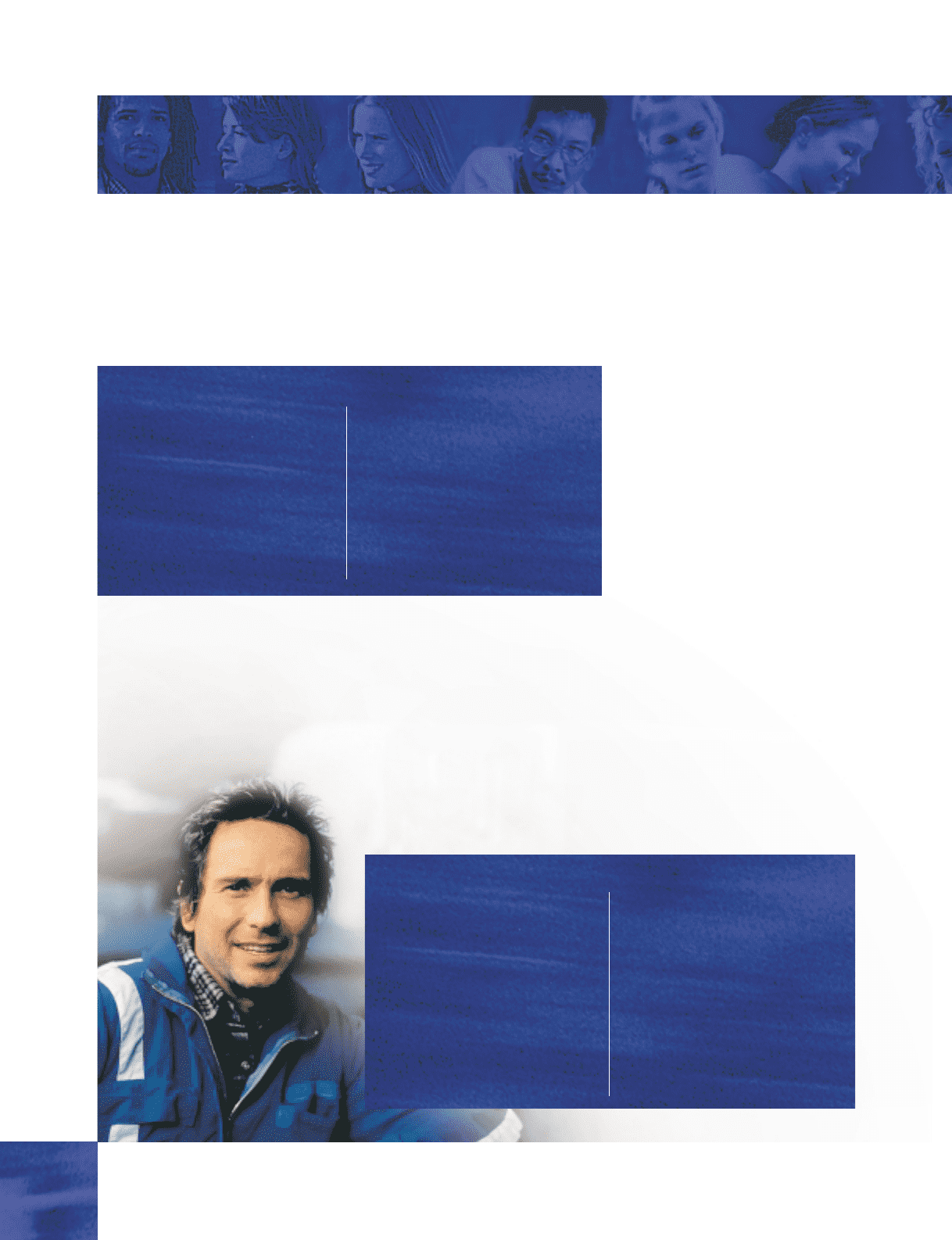
10
1999 was an eventful year for Volvo’s employees. The sale of Volvo’s passenger car
business to Ford Motor Company was completed in March.
The concentration on commercial vehicles and equipment involve great changes for
the employees. New opportunities are opening up for personal development and the
exchange of skills. What are not being changed, however, are the core values – quality,
safety and concern for the environment – that permeate all work at Volvo. As a result of
its long tradition and consistent applica-
tion of basic principles founded on core
values, Volvo is a leader in many respects;
but, if it is to maintain its lead, tradition
must be combined with renewal. The will
and ability to take the lead for change
must be a strong part of Volvo’s culture.
At the end of 1999, to strengthen and
unify the organization, a development
program known as “The Volvo Way” was
begun. It is designed to make clear how
Volvo wants managers and employees to
cooperate in the best possible way, and
how Group objectives are to be achieved. One of the most important messages in “The
Volvo Way” is that Volvo’s objectives will be reached more rapidly if employees can
release more energy in each situation and feel satisfaction and pride in their work. This
will be achieved more readily if there are favorable conditions for each employee to
fulfill his or her potential.
Team work
Each employee in the Volvo Group is part of a team. Teamwork is based on good rela-
tionships, cooperation without seeking prestige and on achieving common objectives.
Accordingly, fixed forms of organization are not the only ones required. Teamwork is
carried out successfully in networks; cross-functional groups perform tasks and solve
exceed 10%. Profit sharing involves
a focus on Volvo’s success factors:
growth, product cycle m anagem ent and
operational excellence. Because em-
ployees will become shareholders, their
understanding of the role of sharehold-
ers within the com pany will increase.
Profit sharing also helps to m ake Volvo
more attractive as an employer to both
present and future employees. Profit
sharing gives employees an additional
incentive to have a favorable impact on
earnings and to feel a greater sense of
solidarity with Volvo.
Volvo Profit Sharing
Volvo is a worldwide organization and,
effective in 2000, its profit sharing will
also be global. Earlier, the Volvo Group
applied profit sharing in Sweden. The
decision to adopt a world-oriented
profit sharing system is based on the
conviction that it will serve as a positive
driving force in both daily and long-
term operations. The new system , Volvo
Profit Sharing, comprises approxim ate-
ly 53,000 employees throughout the
world. Implementation of the profit
sharing system requires that the return
on the Company’s shareholders’ equity
Focus on skills developm ent
During 1999, Volvo’s business concept
changed and a clearer emphasis was
placed on employee skills. Volvo’s in-
creasing focus towards working with
service m eans that skills m ust be broad-
ened and altered. Supporting this process
is the Volvo Learning Partner, a group-
wide unit where both managers and
employees have a platform for their
sk ills developm ent. In February 2000,
a leadership development program was
started, which in contrast to earlier
programs is uniform for all Volvo com -
panies and used by the entire Group.
However, responsibility for skills develop-
ment continues to rest within the
respective business areas. For example,
since 1990, Volvo Trucks has carried out
a leadership development program for
employees with the potential to fill upper
management positions. The underlying
thought behind this is personal develop-
ment and strategic project work, prefer-
ably in cooperation with custom ers.
The employees


